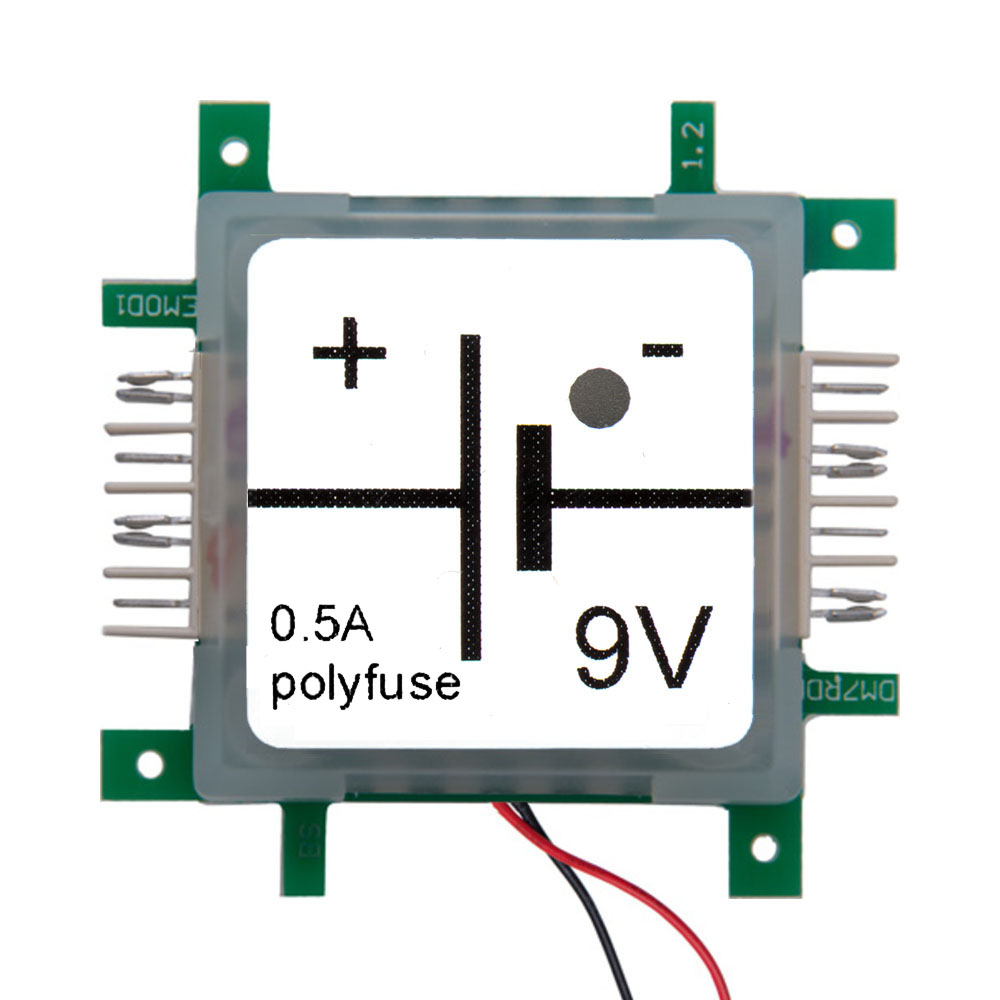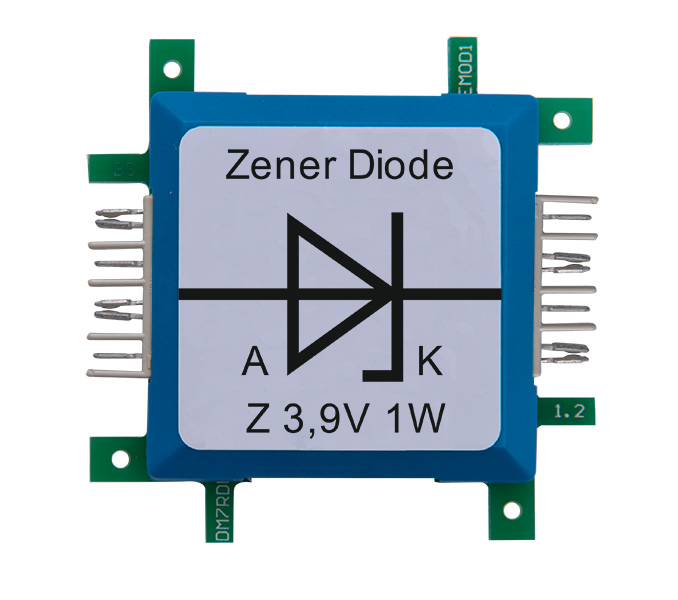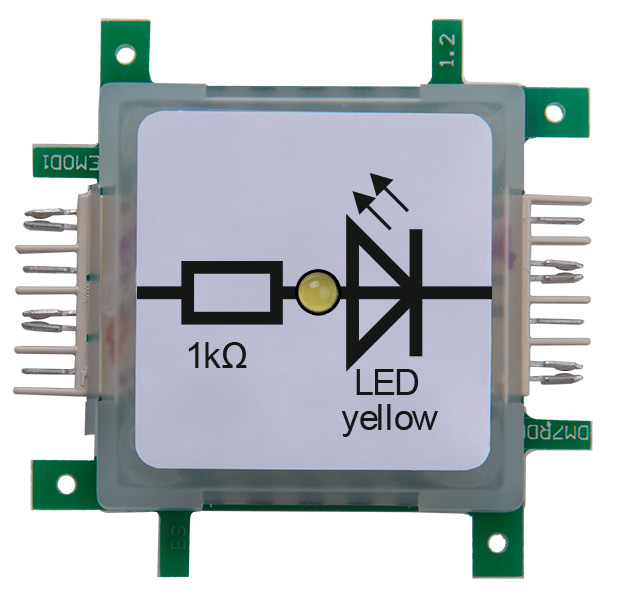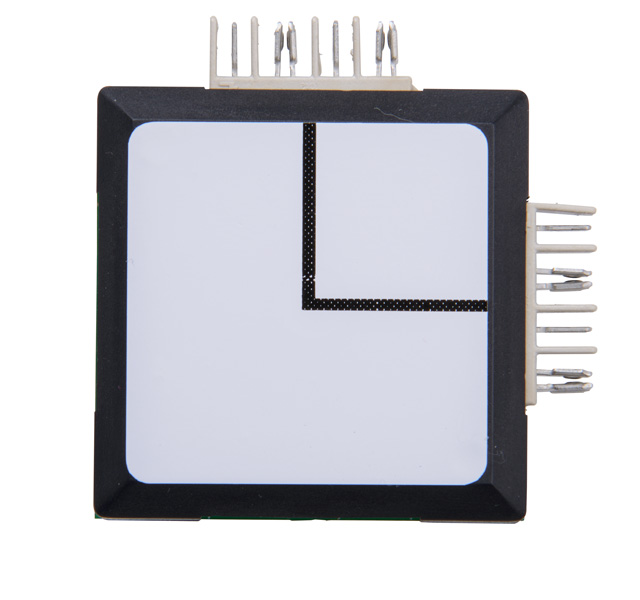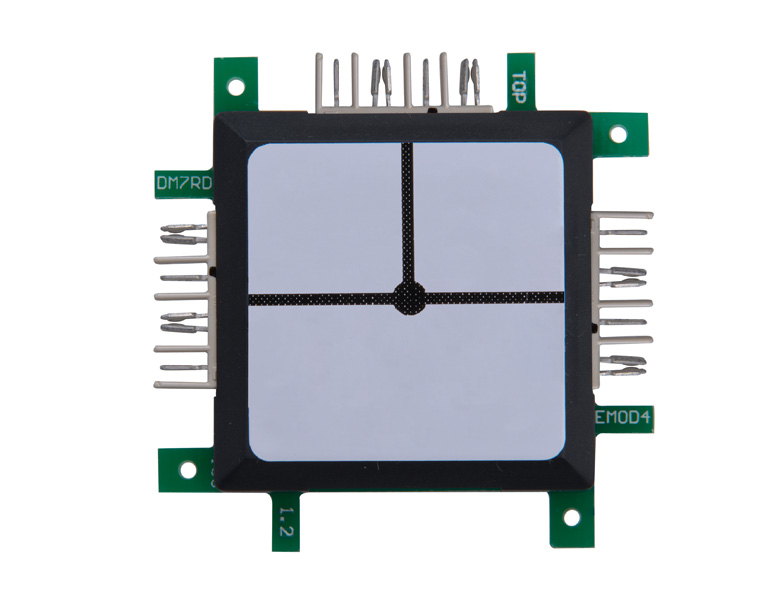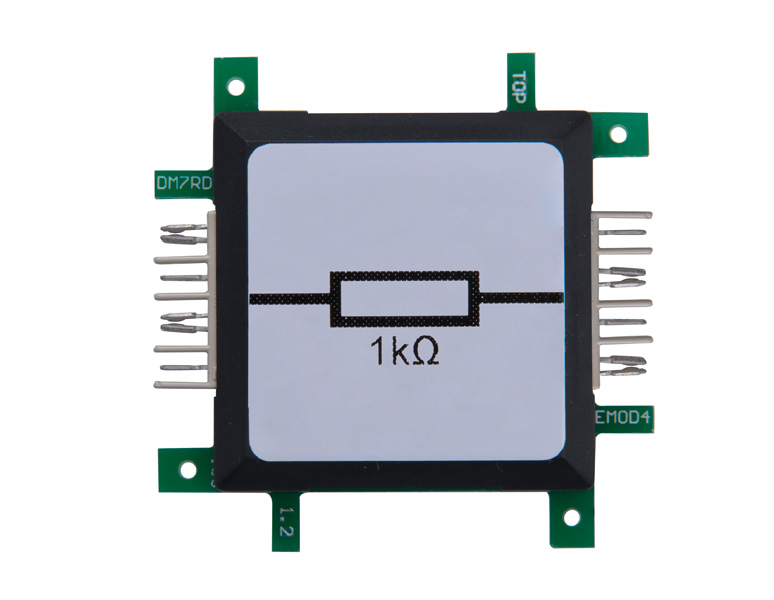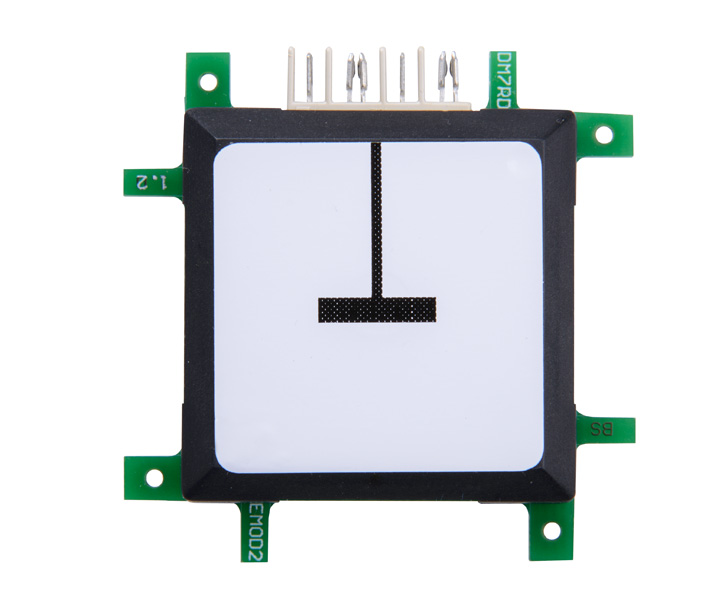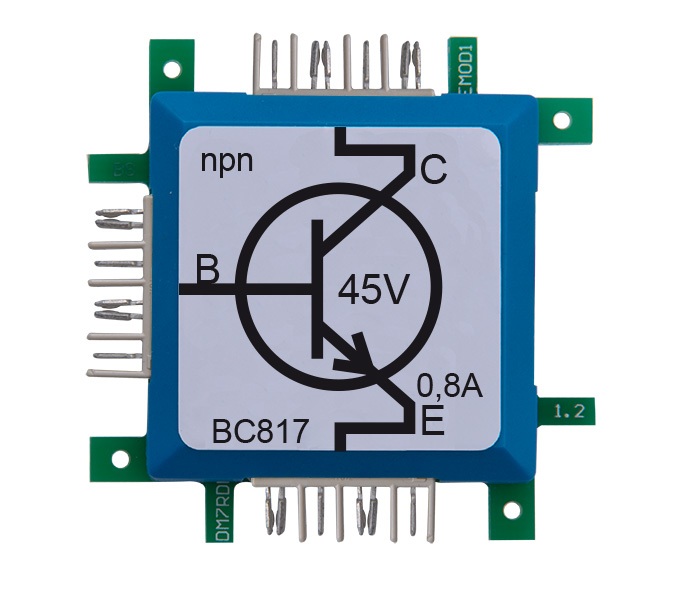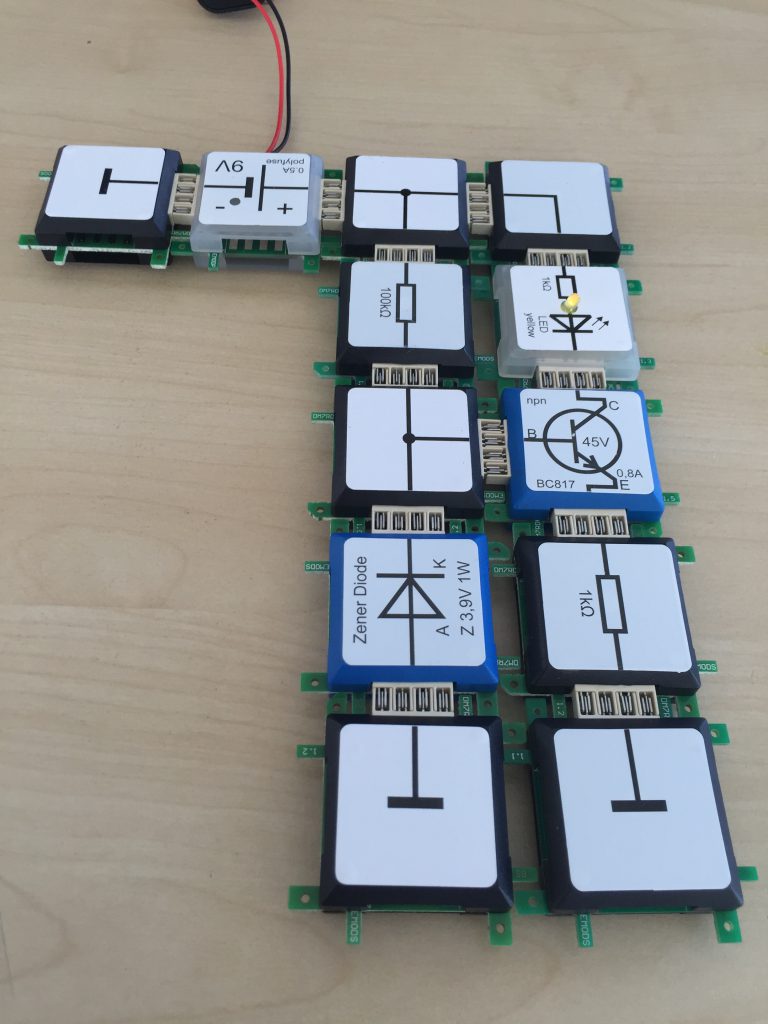
LED with constant current at 9V supply voltage
Zener diode and transistor
Julia Bauer
English
Advanced
Since the voltage drop across diodes (also LEDs) is constant, they are controlled by the current. Usually LEDs are driven with a constrant current to maintain a constant intensity. To stabilize the current we use a small circuit with a transistor and a so called zener diode. The zener diode can be operated in reverse direction, and has a so called breakdown voltage. This zener voltage is 3.9V for our zener diode. Now with the 100k Ohm in series we have a voltage of 3.9V at the base of the transistor. Across the base to emiiter we have 0.7V drop. This results in 3.2V at the emitter. Now we get into business. The 3.2V is also accross the 1k Ohm resistor at the emitter towards ground. A small current ows into the base (dened by the 100 kOhm resistor), its enough to switch on the transistor. Therefore most of the emitter current ows into the collector. That means the current into the LED is around 3.2 mA. It is important to ensure that the zener diode is reverse biased. It is named after the Zener effect, that was described by american scientist Clarence Zener for the rst time. He found out, that electrons can tunnel through the semiconductor layers in the revers direction, when their enhancement with positive and negative charge carriers is very high. Zener diodes have aspecic Z-voltage, depending on their production methode. Our zener diode has a Zener voltage of 3.9 volts. The next experiment 9.10 deals with their constancy.



